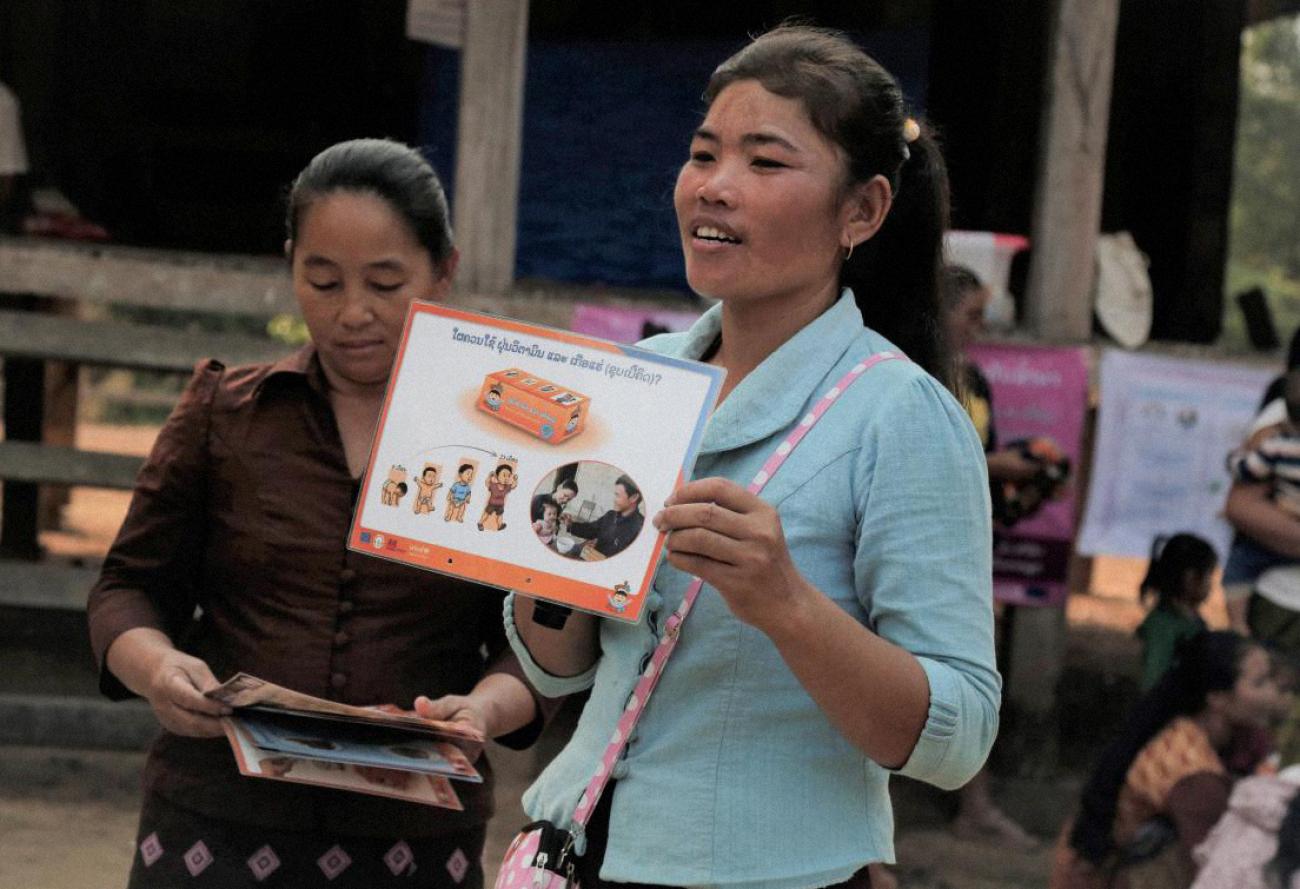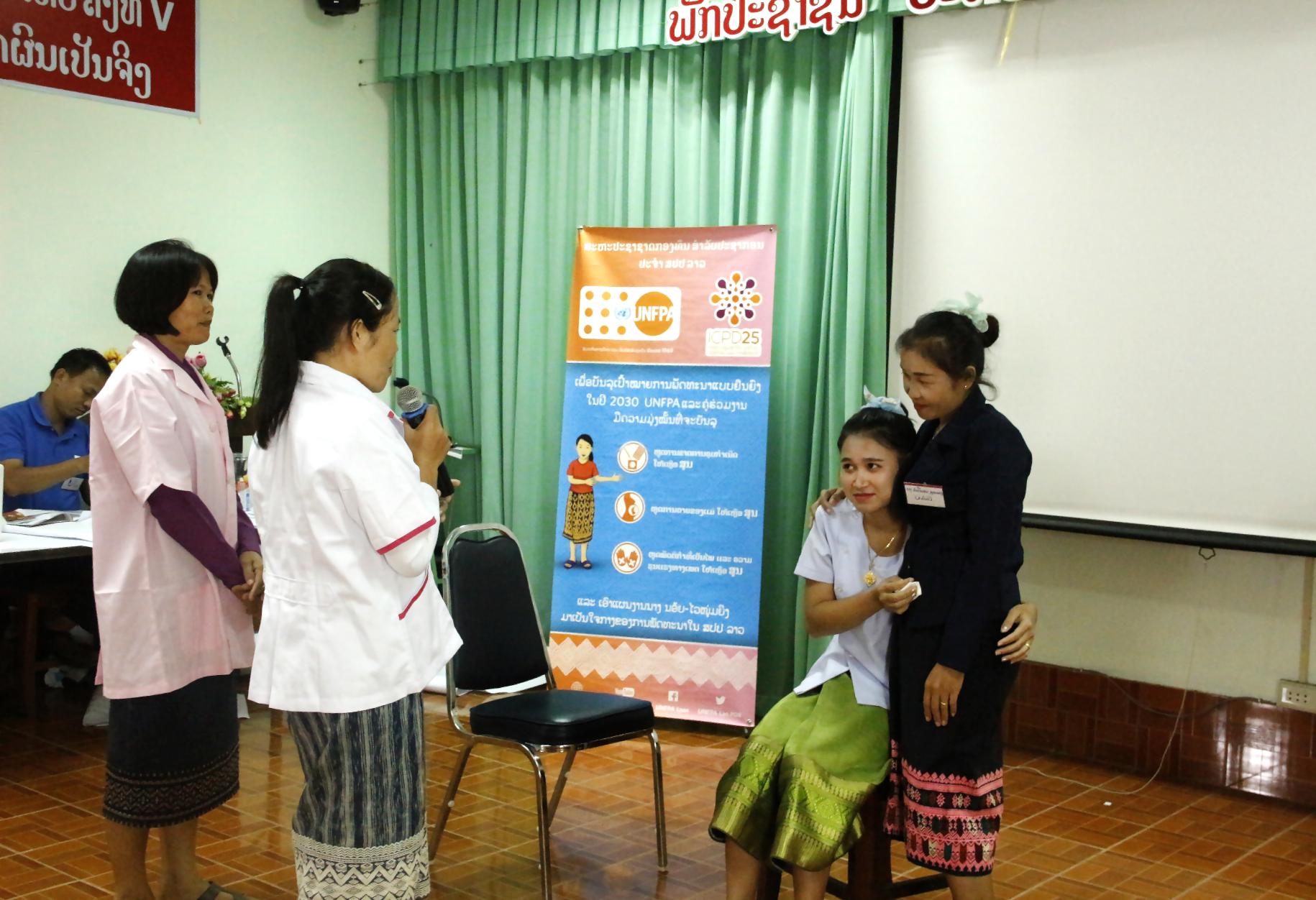Safety first: In Lao PDR, protecting women, youth and children during COVID-19

Story by UNFPA and UNICEF in Lao PDR
Note: This story is inspired by real-life experiences of several migrants. Names and geographical details have been changed to protect the identity and privacy of those individuals.
“Do you want to know my story? Well, it’s the story of a meeting that made incredible people cross my path — people who listened and supported me.” These are the words of Anong, a young woman in the Lao People’s Democratic Republic (Lao PDR).
Anong is 20 years old. She suffered serious health issues and anxiety due to the COVID-19 crisis. “I was living with a man, and things were not easy. He was forcing me to have intimate relations,” she says. “After the lockdown, he was seeing someone else while being with me. I was silent and accepted my situation. I was not protected and contracted a sexually transmitted infection.”
Anong was in despair. She knew that the health providers and resources were focusing on services related to COVID-19. With few places to turn for support, and silence and violence at home, Anong found her situation getting worse. Anong wasn’t the only person suffering from a lack of support. Also at risk were the sexual and reproductive rights of young people in remote areas, with low education levels, and from the lesbian, gay, bisexual, and transgender communities.
Anong found a flyer that described government services supported by the UN for women and children, in total privacy. Curious, she went to the clinic.
“The health provider was so nice to me,” says Anong. “She reassured me, we talked, and she gave me treatment. She asked me to come back again. I also got a number to call anytime if I don’t feel good.”
This and other clinics are supported by the United Nations. Under a UN joint programme, WHO, UNFPA, UNICEF, and Luxembourg partner with the Ministry of Health to improve the health of women, newborns, children, and adolescents in Lao PDR by supporting the implementation of the National Reproductive, Maternal, Newborn and Child Health Strategy and Action Plan 2016-2025.

The joint programme also supports health outreach services to women and children living in remote areas. Women receive family planning advice and contraceptives, pregnant women get ante-natal care checks, children are vaccinated, their growth tracked, and mothers are shown how to prepare nutritious meals for their children. All of this work is done in close cooperation with local authorities, organizations, and communities, including rural women and youth.
“I have seen a lot of changes in the children in my village,” Konghom says, a volunteer leading the outreach activities in Savannakhet province, where Anong lives. “Before, I saw a lot of children who were not eating well and suffering from diarrhea, but now the children of the village are generally growing well with less illnesses.”
These services touch a chord with the people who use them. Says Anong of the day she first visited the clinic, “I found a new family. You can’t imagine the impact of such support to young women like me, who live in fear of judgment from society.”
Produced by UNFPA and UNICEF in Lao PDR, with editorial support by Paul VanDeCarr, Development Coordination Office. To learn more about the work taking place in the country, visit: LaoPDR.UN.org.





































